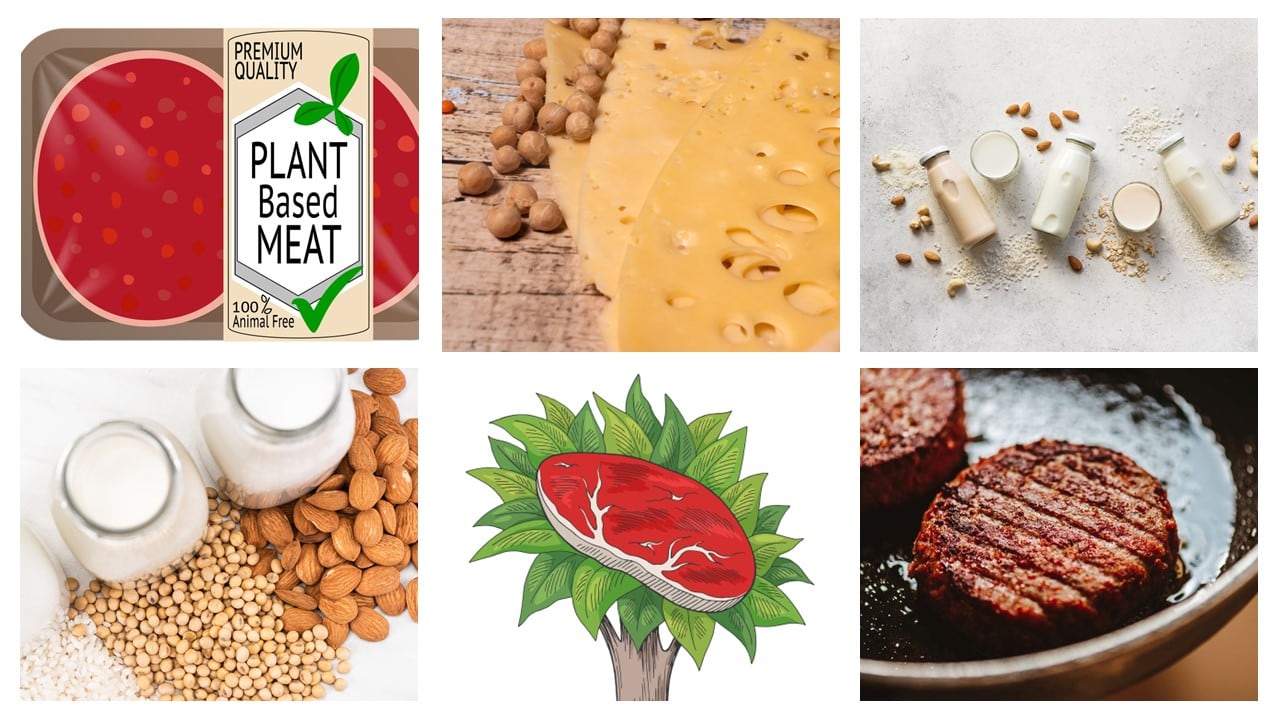The round – led by Munich-based Tengelmann Growth Partners, with participation from No Meat’s initial backer Connecticut-based Emil Capital Partners – will help No Meat expand its geographical footprint and invest in R&D, said CEO and alt meat industry veteran Dieter Thiem (pictured right), who co-founded the company with Leon Bell (pictured left) in 2019.
No Meat has a BRC-certified facility in Coldstream British Columbia producing plant-based protein products from nuggets and hamburgers to whole-muscle lines for its brand partners and is building a second, larger, production facility in the Pacific Northwest, which will begin operations later this year and provide additional manufacturing capabilities for plant-based deli and sausage products, Bell told FoodNavigator-USA.
"The current manufacturing footprint has a convenience line [which includes mixing & forming equipment for processed products such as burgers and nuggets] and a high moisture extrusion line [for whole muscle type products] with bulk and retail packaging capability. With the additional site commissioned in 2023, NMF will be adding production capabilities for sausage, hot dog and deli products. We'll also be adding meaningful convenience line capacity and ready-to-eat capabilities and will have the ability to produce stuffed products shortly."
Right now, he said, "No Meat Factory is primarily manufacturing for brands, which are ultimately sold into the retail and foodservice channels. As the company looks forward, it will sell into retail via private label and directly into foodservice."
How efficient is plant-based meat manufacturing?
There are plenty of theories attempting to explain the slowdown in retail sales of plant-based meat, with some commentators highlighting sub-par taste and texture and over-saturation with me-too products, some pointing to hard-wired cultural barriers (Americans love meat), and some saying the slump is simply a natural correction following a period of rapid trial in the early months of the pandemic.
However, two big hurdles are price (plant-based meat is more expensive than meat from slaughtered animals) and quality-at-scale, with many stakeholders, such as Rebellyous Foods highlighting inefficient and labor-intensive batch (rather than continuous) processes.
Speaking at FoodNavigator-USA’s recent Futureproofing the Food System event, Beyond Meat CEO Ethan Brown argued that lack of scale is holding the segment back: “If you look at JBS or Tyson or Cargill, they're running so much material through their systems, and they have generated tremendous efficiencies, while we're just starting out.”
He added: “For anyone who's interested in lean manufacturing, this is like Disneyland, there's so much to be done to wring cost out of the system. Our own production system does have too much batch [processing] in it, it needs to go to [a] more continuous [process], and all of us will get to the point where it's a much more continuous, steady flow, operational process and that will drive costs down.”
'Although we are an emerging company, the core team has extensive food industry experience, specifically, plant-based food industry experience'
Asked how No Meat had secured funding in the current climate, Bell said: "NMF is seeing abundant demand... Typically, sales are robust and persist for products that taste good, are healthy and nutritious, and convenient to prepare."
But he added: "It is critical to have the experience and expertise to set up cost-effective commercial scale processing capabilities without sacrificing quality; this is core to the NMF organization. Although we are an emerging company, the core team has extensive food industry experience, specifically, plant-based food industry experience: raw materials sourcing and technology, manufacturing experience, research and innovation expertise, and regulatory and quality experience."
And while the plant-based meat supply chain can be inefficient, with some firms extruding in one facility, breading in another and packing in another, for example, No Meat does everything on one site, he said: "All processing and packaging takes place at one site. This allows for increased efficiency and meaningful cost savings."
“As more brands understand the need to provide customers with delicious plant-based alternatives, companies like No Meat Factory are poised to experience rapid growth and increasing demand for its manufacturing capabilities." Daniel Bentrup, investment partner, Tengelmann Growth Partners
“We invested in No Meat Factory at their earliest phase just a few short years ago, and seeing their continued growth underscores the importance of what they’re doing for plant-based protein alternatives as an industry. We’re highly optimistic for the future of No Meat Factory as they plan to evolve beyond servicing brand owners and pursue private-label and foodservice opportunities more broadly.” Marcel Bens, managing partner and chief operating officer, Emil Capital Partners



